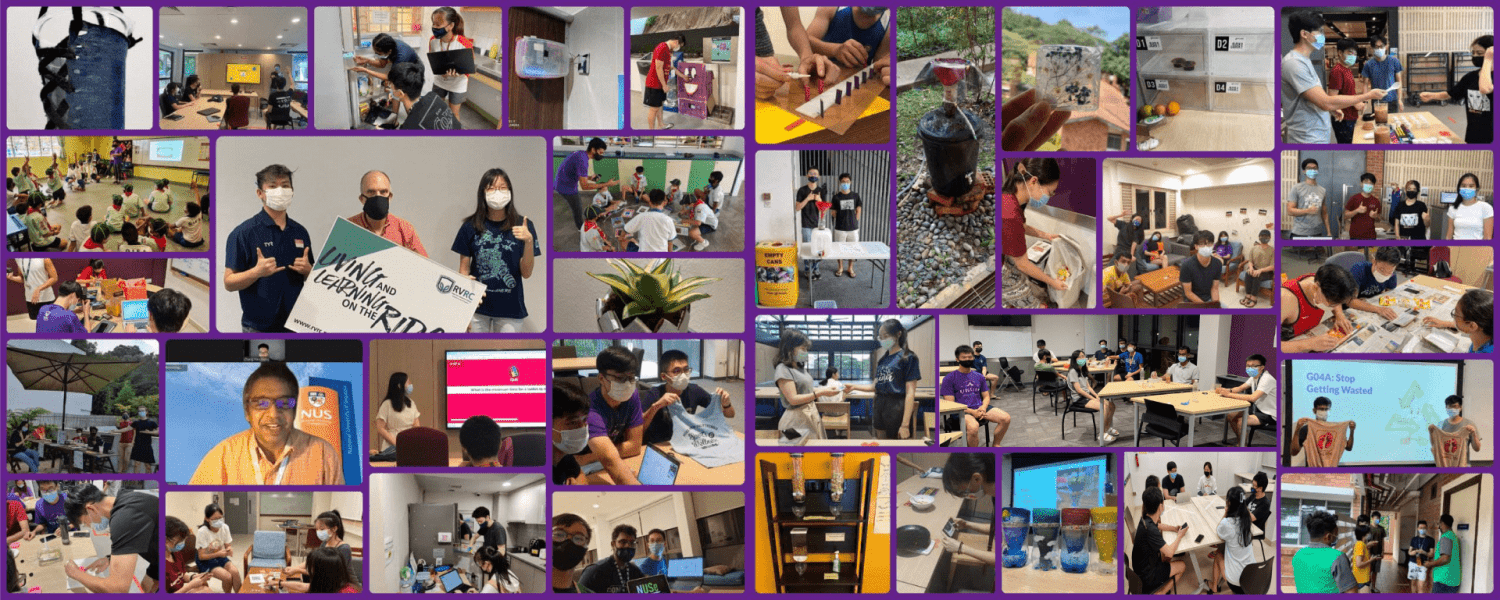Chin De Zhi (F0S), Lin Yuqi Eunice (SDE), Nur Atiqah Bte Ahmad Suhairi (FoS), Theng Poh Ying (FoS), Yellore Gaurav (FoE), Yiow Zhi Yun, Jermaine (SDE)
Academic Advisor: Prof. Adekunle Adeyeye
Industry Advisor: Prof. Peter Ho (FoS, NUS)
In the absence of air-conditioning in residents’ rooms, year-round high humidity in Singapore is the chief cause for Ridge View Residential College (RVRC) students experiencing discomfort. Our project will be focusing on a specific design solution to combat humidity and improve thermal comfort of residents in RVRC using environmentally friendly methods. We propose to design a cheap and low-maintenance DIY air-cooling device made of readily available recycled materials – cardboard and plastic bottles. These materials are ideal for a sustainable solution as as they are insufficiently recycled in Singapore. Our idea is inspired by the project ‘The Eco Cooler’™ that debuted in Bangladesh as the world’s first ‘zero-electricity™ air conditioner’. It eliminates the need for energy to run the cooling system, thus producing zero waste products. The mechanism adopts the Joule-Thomson Effect where a change in temperature occurs when air is forced through a narrow opening. For data collection, we conducted a trial in the high rise RVRC Tower and Old KR blocks for a week each, using our neighbour’s room as the control while testing it out in our own rooms. Results were analyzed when fans in both rooms were either operating or not operating concurrently to reduce confounders. After receiving feedback on our results from our Industry Advisor, we modified our design to tackle humidity instead and will be conducting further tests to measure and assess the impact of the device.
Keywords: Built Environment and Green Infrastructure, Energy, Air-conditioning, Room cooling
